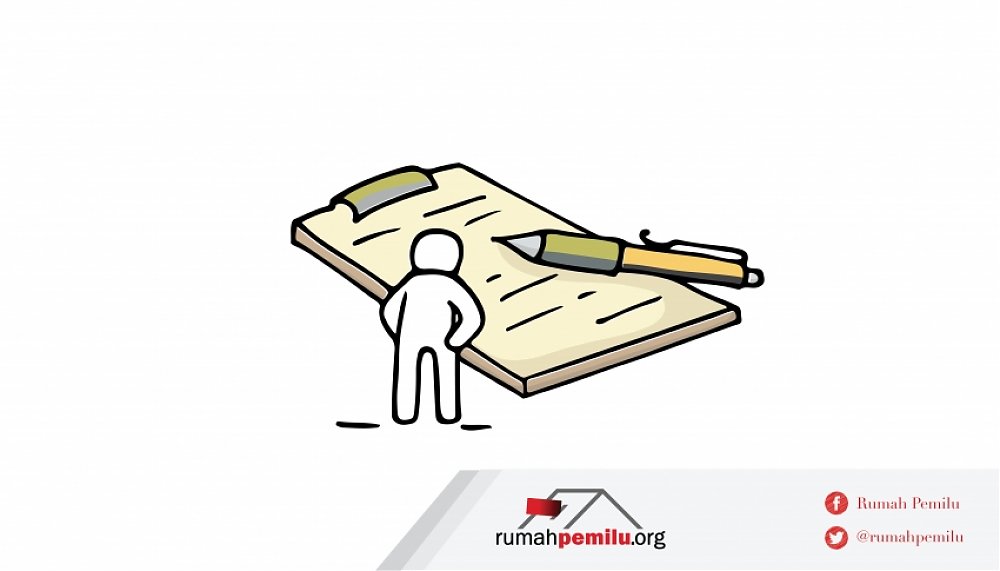The Revised Electoral Law (Bill) has been submitted to the Legislature (Baleg) for harmonization. The bill is expected to be discussed in early 2021 and passed in July or August 2021.
A number of civil society institutions began to discuss the content material of the Electoral Bill, including the Association for Elections and Democracy (Perludem) and Cakra Wikara Indonesia (CWI). Many things are highlighted as crucial issues, one of which is the ness of the election.
Perludem and CWI agree that the simultaneous elections are divided into two, namely national concurrent elections that unite the presidential elections, the elections of members of the House of Representatives, and dpd ri in the same day, and regional concurrent elections that combine the selection of regional lawmakers and regional head elections at the same time.
According to Perludem, the division of national and regional concurrent elections has many positive impacts, such as providing ease of selection for voters because the number of ballots is not very large, giving a logical burden to the election organizers because there are not too many elections managed in the same time, efficiency of the election budget, creating an effective presidential system up to the regional level, and democratizing political parties because there are two elections in a five-year period.
"We propose national and regional elections. In terms of process, in providing the convenience of voters, for election organizers the burden is also more balanced, not too heavy. Then, the cost is efficiency," explained The Executive Director of Perludem, Khoirunnisa Nur Agustyati, at the discussion "Discussing The Crucial Articles in the Electoral Bill", Tuesday (6/10).
A different argument with Khoirunnisa, CWI researcher Yolanda Panjaitan looked at the separation between national and regional elections that combine executive and legislative elections at the national and regional levels in accordance with distributive political concepts. Both the executive and legislative functions have oversight functions so the selection of both positions should be conducted at the same time.
"In this distrubutive politics, the executive and legislature both take control. Thus, it is necessary to start on the same cycle. And thus, the implementation of concurrent elections whose purpose is for austerity and efficiency in line with the implementation of distributive politics," explained Yolanda.
Meanwhile, Vice Chairman of Commission II of the House of Representatives of the NasDem Faction said at the same discussion that some factions in the House of Representatives want executive and legislative elections to be held separately.
"From the six variants, from the input we got, there was a desire for the susceptibleness to be divided into two, namely the legislature and the executive," Saan said.
Referring to the Decision of the Constitutional Court No.55/2019, concurrent elections are executive elections combined with legislative elections. Concurrent executive elections and concurrent legislative elections are not part of the concept referred to by the Court of Appeal. The key is that the presidential election, the election of members of the House of Representatives, and the election of dpd ri members are put together on the same day.











